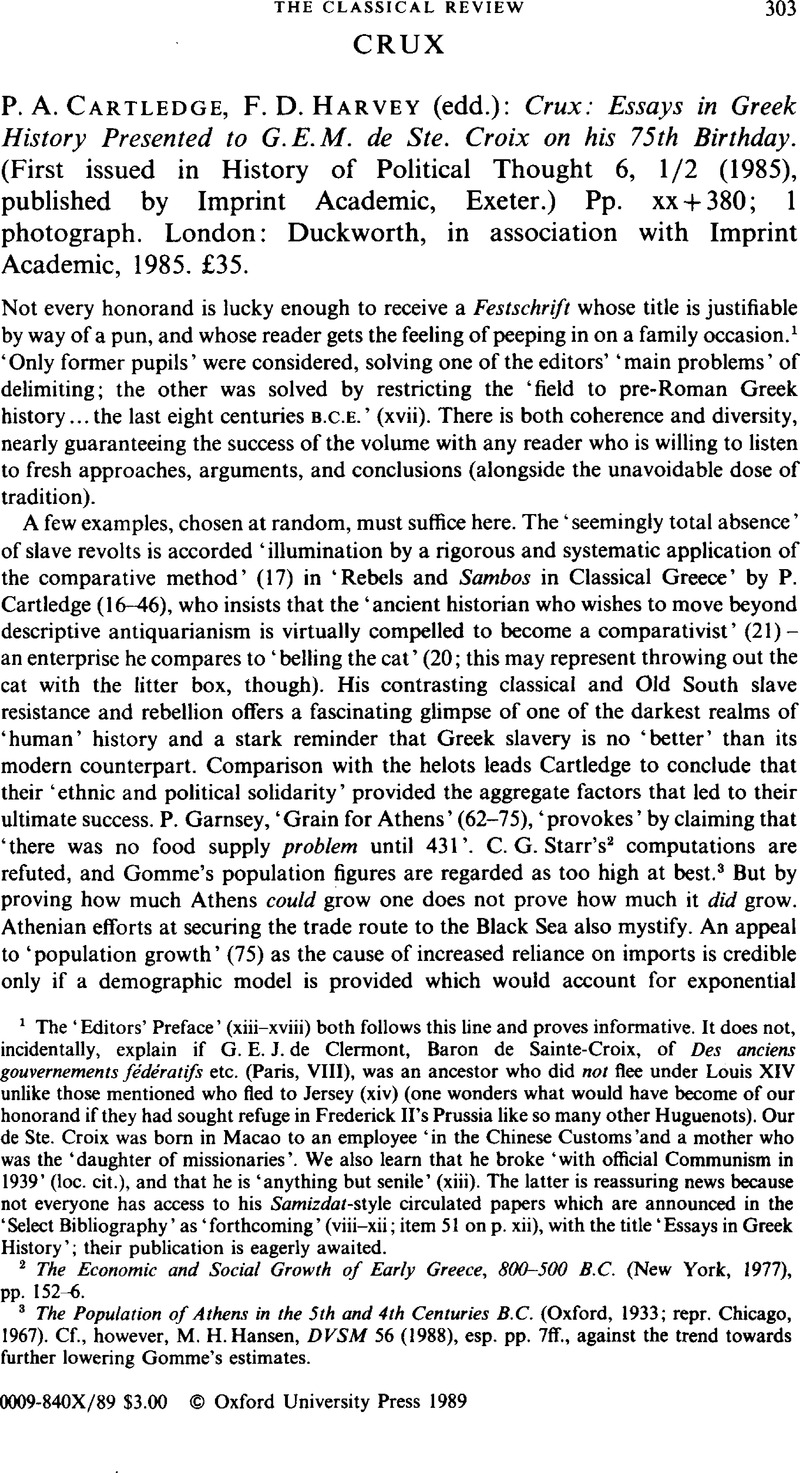No CrossRef data available.
Published online by Cambridge University Press: 16 February 2009

1 The ‘Editors' Preface’ (xiii–xviii) both follows this line and proves informative. It does not, incidentally, explain if de Clermont, G. E. J., de Sainte-Croix, Baron, of Des anciens gouvernements fédératifs etc. (Paris, VIII)Google Scholar, was an ancestor who did not flee under Louis XIV unlike those mentioned who fled to Jersey (xiv) (one wonders what would have become of our honorand if they had sought refuge in Frederick II's Prussia like so many other Huguenots). Our de Ste. Croix was born in Macao to an employee ‘in the Chinese Customs’ and a mother who was the ‘daughter of missionaries’. We also learn that he broke ‘with official Communism in 1939’ (loc. cit.), and that he is ‘anything but senile’ (xiii). The latter is reassuring news because not everyone has access to his Samizdat-style circulated papers which are announced in ‘Select Bibliography’ as ‘forthcoming’ (viii–xii; item 51 on p. xii), with the title ‘Essays in Greek History’; their publication is eagerly awaited.
2 The Economic and Social Growth of Early Greece, 800–500 b.c. (New York, 1977), pp. 152–156.Google Scholar
3 The Population of Athens in the 5th and 4th Centuries b.c. (Oxford, 1933; repr. Chicago, 1967)Google Scholar. Cf., however, Hansen, M. H., DVSM 56 (1988), esp. pp. 7ff., against the trend towards further lowering Gomme's estimates.Google Scholar